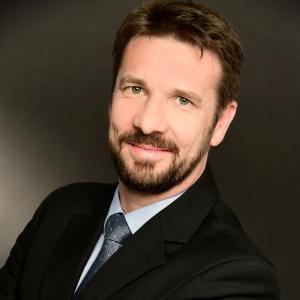Artificial intelligence (AI) is rapidly becoming integrated into our daily lives, with ChatGPT alone having amassed over 100 million users since its launch. Within five days of the app's availability to the general online public, the first million early adopters were already exploring its features. From general knowledge inquiries to career advice, we have been turning to AI for answers ever since — often without questioning the accuracy of the information provided. In response to these concerns, the upcoming HumanTech Meeting will examine critical approaches to algorithms and the challenges of developing responsible AI.
Can we trust the bots?
We would like to cordially invite you to the upcoming HumanTech Meetings event titled "Faith in Bot: Morality and Reliability of ChatGPT." This event will feature prominent speakers in the field of artificial intelligence and ethics, including Sebastian Krügel, Ph.D., and Professor Przemysław Kazienko.
During this event, our esteemed speakers will explore the fascinating and often complex topic of the morality and reliability of ChatGPT, a state-of-the-art language model designed to mimic human communication. With the increasing prevalence of AI-powered chatbots and virtual assistants, it is important to examine the ethical implications of their use and the extent to which we can trust them.
Sebastian Krügel, Ph.D., is an expert in the field of artificial intelligence and ethics, with a focus on machine learning and its social implications. Professor Przemysław Kazienko is a renowned data scientist and expert in the area of network science, with a particular interest in social network analysis and natural language processing.
Please note that the above meeting invitation was generated by ChatGPT (with only minor changes applied) to demonstrate its capabilities.
Dr. Konrad Maj, Head of the Center for Social and Technological Innovation HumanTech at SWPS University, will open the meeting and moderate the panel discussion following the lectures.
Lectures will be held in a hybrid format, in Polish and English. Simultaneous translation will be provided for online viewers, and in-person attendees are advised to bring phones and headphones to access the translation.
The event is held under the auspices of Strefa Technologii (Technology Zone) of SWPS University
Before the meeting, we recommend reading the article "ChatGPT: Jack of all trades, master of none"
HumanTech Meetings
We live in an era of innovation, technological progress and digitalization. This current innovation drive may lead to unpredictable psychological and social outcomes. Therefore, it is crucial to establish collaborations between engineers, programmers, IT specialists and social scientists during initial phases of any new projects related to development of new technologies or services. Such collaborations may help to avoid mistakes and can support better development of new ideas.
The project is planned as a series of meetings, gathering academics and professionals from the technology sector from Poland and other countries. Each meeting will include two lectures, one delivered by a speaker from Poland and one presented by a guest from another country. The lectures will be followed by panel discussions, where panelists will represent different approaches to innovation and technology.
HumanTech Meetings is a project of SWPS University's Center for Social and Technological Innovation.
-
Sebastian Krügel: 1: In Bot We trust: The Moral Authority of ChatGPT (and Other Bots)
AI-powered algorithms are conquering all realms of life, ranging from mobility to personnel recruitment, penal sentencing, or daily conversation. ChatGPT, for instance, OpenAI's cutting-edge AI-powered chatbot, captivates users as a brilliant and engaging conversationalist, which solves exams, writes poetry, and creates computer code. The chatbot also searches for information, answers questions, and gives advice. Unfortunately, ChatGPT sometimes provides false information, makes up answers if it does not know them, and offers questionable advice. The question is how we can enable users to deal critically with AI-powered algorithms like ChatGPT to avoid trusting answers and advice from these algorithms too readily. Transparency is often proposed as a panacea for trustworthy interaction with AI-powered algorithms. In a series of experiments, however, we find that transparency alone does not ensure the responsible use of AI. People's judgments are heavily influenced by ChatGPT's or other bots' advice, despite users being aware that they are receiving advice from a (questionable) bot. In many of these cases, people underestimate the extent to which they were influenced by the bot. The latter finding, in particular, poses a significant challenge to establishing trustworthy interactions with AI. We still need a lot of research and an in-depth discussion about how best to deal with the plethora of issues users face when interacting with AI.
-
Chat GPT: From Narrow Artificial Intelligence to General Artificial Intelligence
Narrow artificial intelligence (AI) has made significant progress in addressing specific problems using supervised or unsupervised machine learning methods. However, the development of pre-trained transformer-based models and human-in-the-loop functionality has enabled large language models (LLMs) like ChatGPT to move closer to achieving artificial general intelligence (AGI). Comparative analyses have shown that the state-of-the-art narrow AI models as yet outperform the general models, especially when dealing with subjective and pragmatic problems. This lecture will discuss the limitations and challenges of ChatGPT and AGI and explore new technological opportunities and methods to address recent major drawbacks of ChatGPT, including its tendency to make up or generalize information, as well as its lack of factual verification.
Keynote Speakers

Sebastian Krügel
Ph.D.
Is a senior researcher at the research center AImotion Bavaria. His research interests lie in the behavioral implications of digital transformation, the ethically aligned design of human-machine interaction, and the consensus-driven design of autonomous systems. His work has been published in leading journals such as the American Economic Review, Computers in Human Behavior, and Philosophy & Technology. In addition to his academic work, Sebastian strives to make his research accessible in policy and social discourse. He has collaborated with partner organizations of the United Nations, advised the European Commission, and presented at public events like the IAA Mobility.

Przemysław Kazienko
Professor
Is a leader of the ENGINE European Data Science Center and the HumaNLP and Emognition research groups in the Department of Artificial Intelligence at the Wrocław University of Technology. He authored more than 300 scientific articles, including more than 50 in Impact Factor journals, on topics such as personalization and subjective tasks in neuro-linguistic programming (NLP), affective processing and emotion recognition, social/complex network analysis, deep machine learning, and the use of decision support systems (DSS) in medicine, finance, and telecommunications. He has initiated and led over 50 projects, including large European projects, mostly in collaboration with companies with total local budgets of more than €10 million. He has delivered over 20 keynote/invited speeches to international audiences and co-chaired more than 20 international scientific conferences and workshops. He is a senior member of the IEEE, a board member of the Network Science Society, and a member of the editorial board of several scientific journals.
Organizer
Center for Social and Technological Innovation HumanTech
Partners
Date and location
April 12, 2023 (Wednesday), 17:00–20:00 CEST (UTC+2)
SWPS University in Warsaw, Chodakowska 19/31, room S306 and online
Contact
E-mail: This email address is being protected from spambots. You need JavaScript enabled to view it.

In 2021, the HumanTech Meetings project was granted an additional PLN 250,000 (EUR 52 828,75) by the Ministry of Education and Science (MEiN), as part of the funding scheme “Społeczna odpowiedzialność nauki – Popularyzacja nauki i promocja sportu” (Social responsibility of science – Popularization of science and sport), (project no. SONP/SN/514650/2021), project duration: 2022-2023, total value: PLN 305,472 (EUR 65 251,67).